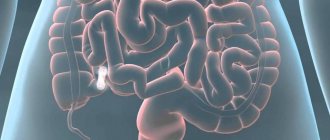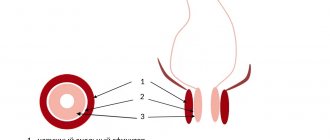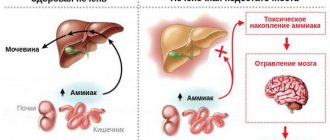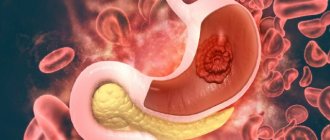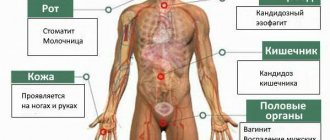1.What is gastroparesis and its causes?
After eating, the stomach normally empties within one and a half to two hours. But in people with gastroparesis, this process takes much longer. The way food is digested changes, and this can cause unpleasant and sometimes very serious symptoms. One of the most serious complications of gastroparesis is bezoar.
. A condition where due to gastroparesis, food remains in the stomach for a very long time and forms into a hard lump that gets stuck in the stomach. However, the situation becomes so serious very rarely.
Causes of gastroparesis of the stomach
Gastroparesis occurs when the nerves in the stomach area are damaged or otherwise fail to function. Diabetes
– one of the most common causes of gastroparesis.
Other factors in the development of gastroparesis may include certain nervous system disorders
(Parkinson's disease and stroke) and
medications
(such as cyclic antidepressants, calcium antagonists, opiate pain relievers). Gastroparesis can result from complications after gastric surgery.
A must read! Help with treatment and hospitalization!
Recommendations
- "How to pronounce gastroparesis in English." dictionary.cambridge.org
. - . In: Simpson, Kathleen Rice, Crean, Patricia A. eds. Perinatal care AWHONN
. 4th edition. 530 Walnut Street, Philadelphia, PA 19106 USA: Lippincott Williams & Wilkins; 2014. Available at: Books @ Ovid, https://ovidsp.ovid.com. Accessed 09 November 2022 - Fuglsang, J., & Ovesen, P. R. (2015). Pregnancy and childbirth in a woman with type 1 diabetes mellitus, gastroparesis and gastric neurostimulator. Diabetes Care, 38(5), e75. DOI: 10.2337/dc14-2959
- ^ a b c d
Thorn AR (March 2010).
"Not Just Another Case of Nausea and Vomiting: A Review of Post-Infectious Gastroparesis." Journal of the American Academy of Nurse Practitioners
.
22
(3): 125–33. Doi:10.1111/j.1745-7599.2009.00485.x. PMID 20236395. - "Gastroparesis: symptoms." MayoClinic.com. 2012-01-04. Retrieved 2012-10-09.
- ^ a b
"Summary for the Oley Foundation, R. W. McCallum, M.D."
oley.org. Archived from the original on 2005-12-12. Retrieved 2012-10-09.[ unreliable medical source?
] - "10 Ways to Increase Stomach Acid Levels." DrJockers.com
. January 19, 2016 - Davis, Mellar P.; Weller, Rene; Regel, Sally (2018), MacLeod, Roderick Duncan; Van den Block, Liv (ed.), "Gastroparesis and Cancer-Associated Gastroparesis", Textbook of Palliative Care
, Springer International Publishing, pp. 1–15, doi:10.1007/978-3-319-31738-0_114-1, ISBN 978-3-319-31738-0 - "Review".
- ^ a b c d f
Ouyang, Chang (01.10.2011).
"Phenotypic switching in diabetic gastroparesis: mechanism guides therapy." Gastroenterology
.
141
(4):1134–1137. Doi:10.1053/j.gastro.2011.08.014. ISSN 0016-5085. PMID 21875587. - “A look at gastroparesis,” non-author article, Balance
(Diabetes UK, no. 246, May–June 2012, p. 43. - ^ a b
"Causes of Gastroparesis - Mayo Clinic." - "Gastroparesis." Jackson Siegelbaum Gastroenterology
. 2011-11-08. Retrieved 2019-11-06. - "Gastroparesis - Your Guide to Gastroparesis - Causes of Gastroparesis." Heartburn.about.com. Retrieved 2012-02-10.
- "Gastroparesis: causes." MayoClinic.com. 2012-01-04. Retrieved 2012-10-09.
- "Epocrates article, registration required." online.epocrates.com. Retrieved 2012-10-09.
- Kohli, Divyans; Majithia, Raj; Shocket, David I; Finelli, Frederick; Koch, Timothy (October 2012). "Possible role of niacin in the development of indeterminate colitis after bariatric surgery." American Journal of Gastroenterology
.
107
:S233. Doi:10.14309/00000434-201210001-00561. ISSN 0002-9270. - ^ a b
Oh, J. H., Pasricha P. J. (January 2013).
"Recent advances in the pathophysiology and treatment of gastroparesis." Journal of Neurogastroenterology and Motor Sciences
.
19
(1): 18–24. Doi:10.5056/jnm.2013.19.1.18. PMC 3548121. PMID 23350043. - Al-Shboul O.A. (2013). "The importance of interstitial cells of cajal in the gastrointestinal tract". Saudi Journal of Gastroenterology
.
19
(1): 3–15. Doi:10.4103/1319-3767.105909. PMC 3603487. PMID 23319032. - "Evaluation and Diagnosis of Gastroparesis - Mayo Clinic."
- ^ a b
"Gastroparesis".
American Diabetes Association
. Retrieved 2018-09-08. - ^ a b c d f
"Complications of Gastroparesis - Mayo Clinic." - Lisa Sanders, MD "Diagnosis," NY Times Magazine, 3.4.18 pp. 16-18.
- Bharadwaj S, Meka K, Tandon P, Rathur A, Rivas JM, Vallabh H, Jevenn A, Guirguis J, Sunesara I, Nischnick A, Ukleja A (May 2016). "Management of malnutrition associated with gastroparesis." Journal of Digestive Diseases
.
17
(5): 285–94. Doi:10.1111/1751-2980.12344. PMID 27111029. - ^ a b
"Treatment options for gastroparesis."
Medtronic.com
. Medtronic. September 29, 2014. Retrieved March 9, 2016. - "Methoclopramide hydrochloride." Monograph
. American Society of Health-System Pharmacists. Retrieved March 23, 2016. - Rang, HP.; Dale, M. M.; Ritter, J.M.; Moore, P. C. (2003). Pharmacology
(5th ed.).
Edinburgh: Churchill Livingstone. ISBN 0-443-07145-4.[ page needed
] - Gottlieb S (August 2000). "Sildenafil may help patients with diabetes." BMJ
.
321
(7258): 401A. PMC 1127789. PMID 10938040. - Kundu S, Rogal S, Alam A, Levinthal JD (June 2014). "Rapid improvement of symptoms of post-infectious gastroparesis with mirtazapine." World Journal of Gastroenterology
.
20
(21): 6671–4. doi:10.3748/wjg.v20.i21.6671. PMC 4047357. PMID 24914393. - Kim SW, Shin IS, Kim JM, Kang HS, Moon Joo, Yang SJ, Yoon JS. (2006). "Mirtazapine for severe gastroparesis refractory to conventional prokinetic treatment." Psychosomatics
.
47
(5): 440–2. doi:10.1176/appi.psy.47.5.440. PMID 16959934. - Samuel, Bankole; Atiemo, Kofi; Cohen, Philip; Cherniak, Donald; Kelly, John; Perugini, Richard (2016). "Effect of sleeve gastrectomy on gastroparesis: a brief clinical review." Bariatric Surgical Practice and Patient Care
.
11
(2): 84–9. doi:10.1089/bari.2015.0052. - https://www.sages.org/meetings/annual-meeting/abstracts-archive/sleeve-gastrectomy-for-the-treatment-of-diabetic-gastroparesis/[full citation required
] - Bharucha, Adil E. (March 2015). "Epidemiology and natural history of gastroparesis". Gastroenterology Clinics of North America
.
44
(1):9–19. doi:10.1016/j.gtc.2014.11.002. ISSN 0889-8553. PMC 4323583. PMID 25667019.
2. Symptoms of the disease
The most common symptoms of gastroparesis are:
- Feeling of fullness in the stomach after eating a small amount of food;
- Nausea;
- Vomit;
- Food goes back into the throat without nausea or vomiting.
A person with gastroparesis may experience occasional high or low blood sugar levels. Conversely, gastroparesis may be suspected in people with diabetes who suffer from upper gastrointestinal problems. Controlling your blood sugar levels may reduce the symptoms of gastroparesis.
Visit our Gastroenterology page
Botulinum toxin (Botox®)
Sometimes with gastroparesis there is spasm of the lower part of the stomach, which makes it difficult to empty it. Botulinum toxin is a medicine that your doctor injects into your abdominal muscles to relieve spasms.
Some clinical studies have proven the effectiveness of this technique in patients with gastroparesis. Other studies have shown that this treatment is not helpful. Therefore, this technique can be used for a certain category of patients, usually with signs of spasm in the lower part of the stomach.
3. Diagnosis of gastroparesis
To diagnose gastroparesis, your doctor will do a general physical exam and ask you about any symptoms that are bothering you. In addition, the doctor should conduct special examinations to check the condition of the stomach and digestive system and to rule out other possible gastrointestinal problems. Tests for diagnosing gastroparesis include:
includes:
- Gastric emptying scan
. This test shows how quickly food leaves the stomach. To do this, a radioactive substance is injected into the solid food you eat. The radiation dose there is very small and does not pose any health hazard. This substance can be seen during a scan. This means that both the food in the stomach and how quickly it moves further along the digestive tract will be visible. - Manometry of the stomach or duodenum
. Manometry is a test that measures the strength and pattern of muscle contractions. This study can be done both in the stomach and in the first part of the intestine (duodenal manometry). - Examination of the upper gastrointestinal tract using a fluoroscope.
This X-ray test with a preliminary swallow of barium solution helps to track the progress of food. - Endoscopy of the upper gastrointestinal tract.
- Ultrasound of the abdominal cavity.
- Blood tests.
About our clinic Chistye Prudy metro station Medintercom page!
Electrical stimulation of the stomach
A gastric electrical stimulator is a device designed to electrically stimulate the organ.
Electrical stimulation of the stomach is used to correct severe gastroparesis, it provides:
- Performing a minor operation to install electrodes on the gastric mucosa.
- Electrodes provide electrical stimulation, and the pacemaker is placed outside the stomach.
- Exposure to electrical current increases muscle contractions and improves gastric emptying.
4. Treatment of the disease
Several things can help treat gastroparesis and relieve its symptoms. Try, for example, the following:
Change your eating habits. Eat more often, but in small portions. It is better to replace some of the food with something more liquid - eat soups and other non-solid foods. Eat no later than 2-3 hours before bedtime. It is better to give preference to dishes low in protein and fat. And you need to eat slowly, without haste.
Diabetics are advised to carry some lozenges and other products with them that can quickly help reduce blood sugar levels. Gastroparesis can cause unpredictable changes in blood sugar levels. Therefore, the better you know how the body reacts to these fluctuations, the better you can control your condition.
Some medications are also used to treat gastroparesis.
:
- Medicines to help cope with nausea and vomiting;
- Drugs that help food pass through the stomach faster (motility agents).
Dietary changes and these medications help treat gastroparesis in most patients. But if this regimen doesn't work, you may need a different approach to treating gastroparesis. Sometimes it is enough to replace one medicine with another or try a combination of several drugs. For severe gastroparesis, treatment may involve surgical placement of a feeding tube in the small intestine. Very rarely, procedures whose effectiveness has not been fully confirmed are used to treat gastroparesis - injections of botulinum toxin (Botox) into the area separating the stomach from the intestines. And the second method in this category is the implantation of a gastric electrical stimulator, which can speed up the work of the stomach.
New techniques
The search continues for drugs and procedures that may be effective in treating gastroparesis. New drugs that affect gastrointestinal motility are being tested in clinical trials.
Gastric outlet stenting (placing a stent in the pylorus), gastric outlet myotomy (cutting the pyloric muscles), and gastrectomy (surgical removal of the stomach) are new treatments for gastroparesis that patients may receive if they choose to participate in clinical trials.
further reading
- Review from NIDDK National Institute of Diabetes and Digestive and Kidney Diseases at NIH
- Camilleri, M., Parkman, H. P., Shafi, M. A., Abell, T. L., Gerson, L. (January 2013). "Clinical Guideline: Treatment of Gastroparesis." American Journal of Gastroenterology
.
108
(1):18–37, test 38. doi:10.1038/ajg.2012.373. PMC 3722580. PMID 23147521. - Parkman HP, Fass R, Foxx-Orenstein AE (June 2010). "Treatment of patients with diabetic gastroparesis." Gastroenterology and hepatology
.
6
(6): 1–16. PMC 2920593. PMID 20733935.
